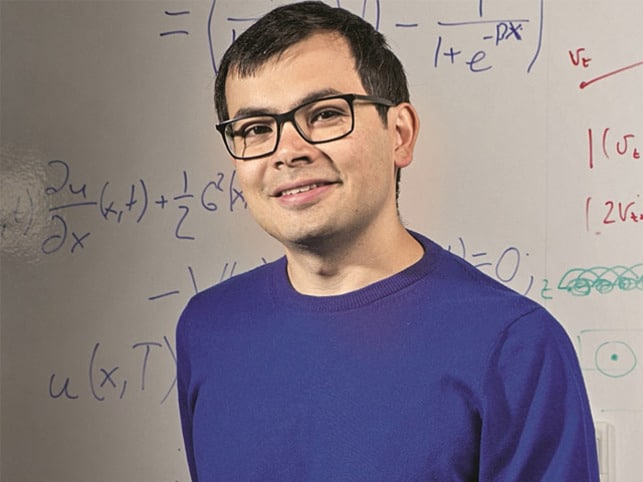
Artificial intelligence entrepreneur Demis Hassabis has been made a Commander of the Order of the British Empire for “services to science and technology”.
The announcement came in the same week as an interview with Demis (OE 1988–1990) by Prince Harry was broadcast on BBC Radio Four’s flagship Today programme, which the prince was guest-editing.
Demis is the co-founder and chief executive of DeepMind, which recently announced that its supercomputer program, AlphaGo, had taught itself to become the world’s best player of the ancient strategy game, Go, without any guidance from human beings.
Responding to news of the CBE, he told the BBC he was “very proud” of his team at DeepMind. “This is recognition of the immense contribution they have already made to the world of science and technology, and I’m excited about the potential for many more breakthroughs and societal benefit in the years ahead,” he said.
 DeepMind was acquired by Google in 2014 for a reported £400 million. Demis told Prince Harry that DeepMind’s workforce has gone from around 100 at that time to more 700 today, adding that there are over 60 nationalities and more than 400 PhDs inside the company.
DeepMind was acquired by Google in 2014 for a reported £400 million. Demis told Prince Harry that DeepMind’s workforce has gone from around 100 at that time to more 700 today, adding that there are over 60 nationalities and more than 400 PhDs inside the company.
“It’s really the biggest collection of brainpower anywhere in the world on this topic,” he said. “And it’s happening right here in King’s Cross so I’m very proud of that.”
Topics broached by the prince included the ethical implications of AI and what DeepMind is doing to ensure that the benefits of AI extend to all humanity. He also asked him why he has decided to keep DeepMind in London.
Demis said: “I’m a proud born-and-bred Londoner. I love London and Britain and I think that I have always believed that we have top talent here. We have world-leading universities and it just requires, I think, the ambition and the drive to actually really try and create a deep technology company like Deepmind. And I always felt it could be done in London.
 “But I was told at the beginning when we were starting up that we were crazy and that we should go to Silicon Valley and that that was the only place that you could build these types of companies. I think we proved that wrong. Even when we got bought by Google, I insisted that we would stay in London and build the research team here.”
“But I was told at the beginning when we were starting up that we were crazy and that we should go to Silicon Valley and that that was the only place that you could build these types of companies. I think we proved that wrong. Even when we got bought by Google, I insisted that we would stay in London and build the research team here.”
DeepMind has two floors in Google’s London headquarters, as well as smaller offices in California and Canada.
 With global competition for AI talent fierce, DeepMind’s hiring frenzy has not come cheap. The company spent £104.8 million on “staff costs and other related costs” last year, according to a document filed with Companies House in October, reported Sam Shead, of American finance and business website, Business Insider.
With global competition for AI talent fierce, DeepMind’s hiring frenzy has not come cheap. The company spent £104.8 million on “staff costs and other related costs” last year, according to a document filed with Companies House in October, reported Sam Shead, of American finance and business website, Business Insider.
The website added that DeepMind made a loss of £164 million in total in 2016, a significant increase on the £54 million loss it posted in 2015. However, the company brought in revenue for the first time in 2016, recording a turnover of £40 million. The turnover relates to DeepMind’s projects with Google.

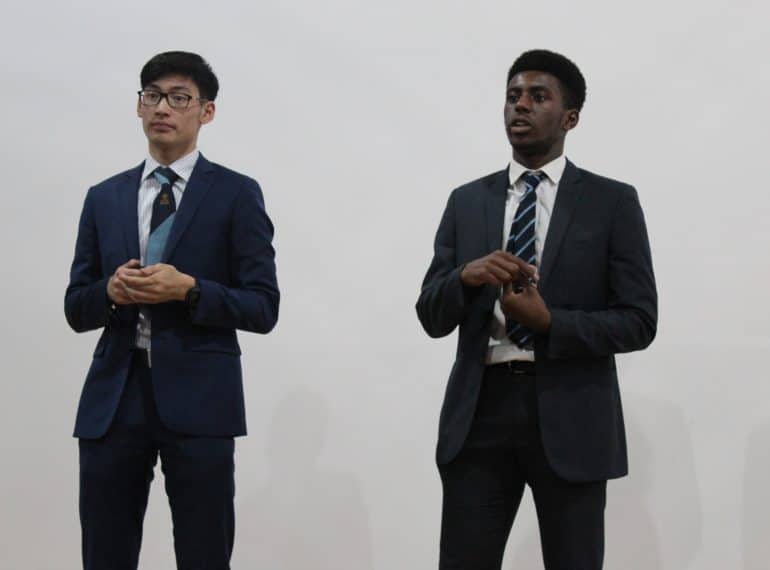
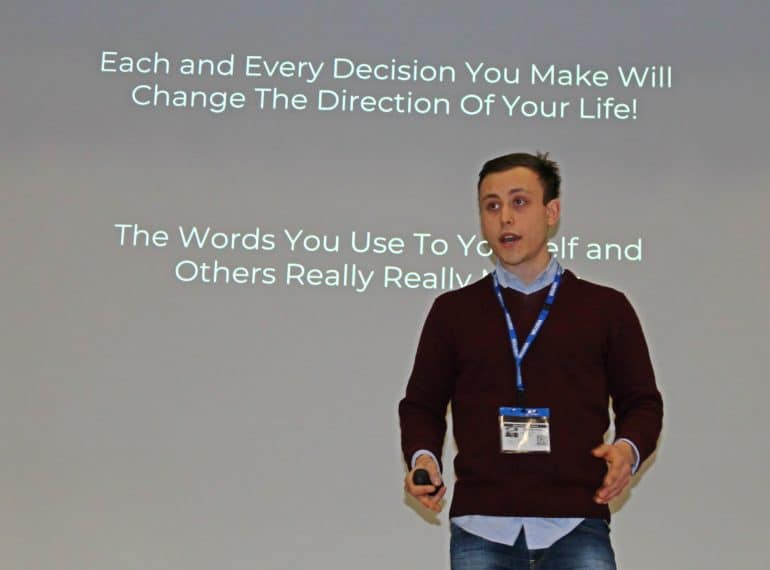
 When he and his family moved to a new house on a long road, he took the opportunity to lose weight by running up and down that road. Determined to get in shape, he “ran and swam and then ran and swam”. He lost two-and-a-half stone in three months at the age of 14, yet the name-calling continued.
When he and his family moved to a new house on a long road, he took the opportunity to lose weight by running up and down that road. Determined to get in shape, he “ran and swam and then ran and swam”. He lost two-and-a-half stone in three months at the age of 14, yet the name-calling continued. Even at the time, he recognised that his behaviour was becoming unhealthy, and yet, he said, that was almost the point: “I wanted to look ill. If my dad said: ‘You look well today,’ it would upset me and make me want to lose more weight. I was a zombie, focused on numbers: the numbers on the scales would determine my day.”
Even at the time, he recognised that his behaviour was becoming unhealthy, and yet, he said, that was almost the point: “I wanted to look ill. If my dad said: ‘You look well today,’ it would upset me and make me want to lose more weight. I was a zombie, focused on numbers: the numbers on the scales would determine my day.” He also began saying that he would be working for a leading firm of accountants in two years’ time on their school-leaver programme. He duly achieved this, getting through a seven-stage interview process. However, once there, he decided that his money-motivated colleagues were not the sort of people he really wanted to be working with – he wanted to work for positive change. It was important, he concluded, that we all ask ourselves: “What do we want to be remembered for?” People were, after all, remembered not for their money, but for who they really were, he said.
He also began saying that he would be working for a leading firm of accountants in two years’ time on their school-leaver programme. He duly achieved this, getting through a seven-stage interview process. However, once there, he decided that his money-motivated colleagues were not the sort of people he really wanted to be working with – he wanted to work for positive change. It was important, he concluded, that we all ask ourselves: “What do we want to be remembered for?” People were, after all, remembered not for their money, but for who they really were, he said.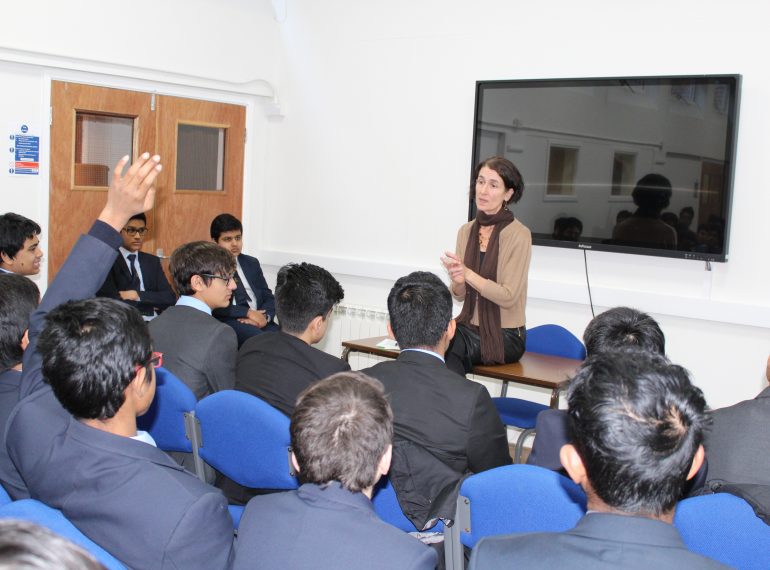
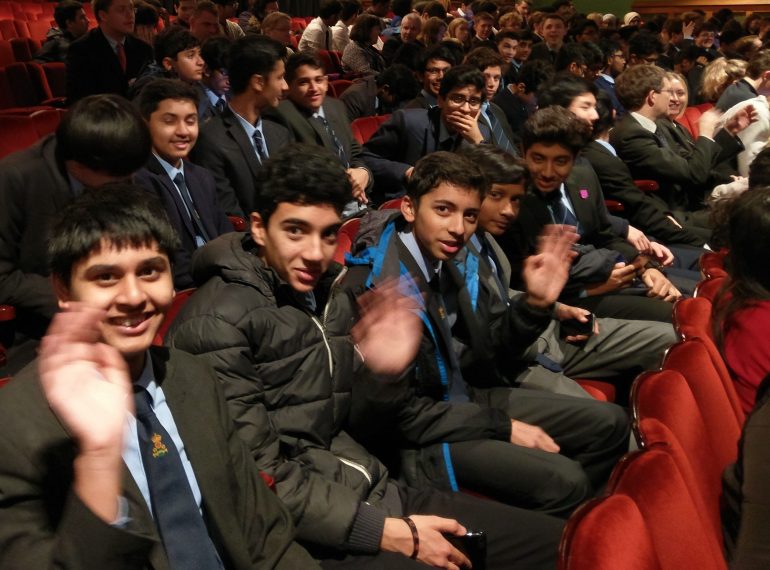
 Among the speakers were Jennifer Rogers, who gained a PhD at Warwick and is now a research fellow in the Department of Statistics at the University of Oxford. She was widely quoted this summer when she worked with the BBC’s Watchdog programme on investigating Ryanair’s claims that it allocated seats to people who had not paid to reserve seat on an entirely random basis. All the people in her sample were allocated the dreaded middle seats – and the chances of that happening were smaller than the chance of winning the National Lottery jackpot, she found. In her lecture, she explained how she had made the calculations using simple probability and asked the audience to consider whether this meant Ryanair’s claim to random allocation was invalid.
Among the speakers were Jennifer Rogers, who gained a PhD at Warwick and is now a research fellow in the Department of Statistics at the University of Oxford. She was widely quoted this summer when she worked with the BBC’s Watchdog programme on investigating Ryanair’s claims that it allocated seats to people who had not paid to reserve seat on an entirely random basis. All the people in her sample were allocated the dreaded middle seats – and the chances of that happening were smaller than the chance of winning the National Lottery jackpot, she found. In her lecture, she explained how she had made the calculations using simple probability and asked the audience to consider whether this meant Ryanair’s claim to random allocation was invalid. Mathematician and juggler Colin Wright received his maths doctorate in 1990 from Cambridge University. He looked at the importance of spotting patterns – showing that juggling tricks are, in fact, patterns with mathematical properties – but warned that patterns are not always as predictable as they seem.
Mathematician and juggler Colin Wright received his maths doctorate in 1990 from Cambridge University. He looked at the importance of spotting patterns – showing that juggling tricks are, in fact, patterns with mathematical properties – but warned that patterns are not always as predictable as they seem.